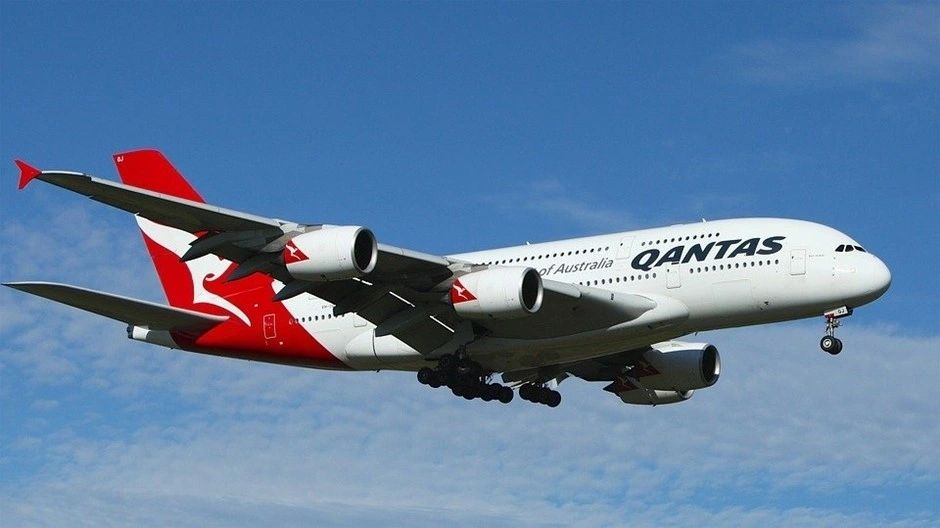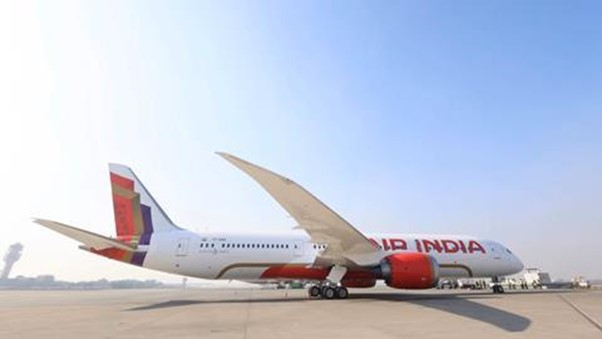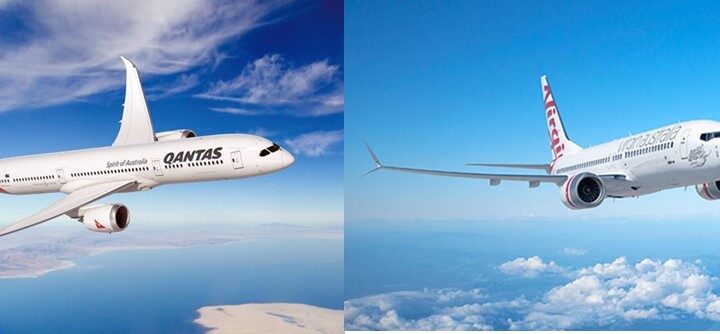
Qantas A380
After being requested to work longer shifts with fewer breaks, the cabin crew at Qantas has voted virtually overwhelmingly in favour of striking.
Strikes lasting up to 24 hours are possible as part of the FAAA’s action, along with limits on overtime and a “withdrawal from boarding responsibilities,” in which employees remain on the plane even while passengers board.
The development might significantly impact Qantas’ plans to increase domestic capacity in response to growing demand. Passengers may experience disruptions, including flight delays or cancellations, as a result.
“Out of touch” management was revealed, according to national secretary Teri O’Toole.
O’Toole stated that “our members have suffered under expired agreements for several years,” adding that they had to deal with stand-downs and the COVID pandemic.
Meanwhile, travel demand has surged, and Qantas is enjoying multibillion-dollar profits. Despite this, Qantas expects its dedicated staff to accept pay freezes and below-inflation raises while seeking significant productivity increases.
Due to the scheduled shift extensions, flight attendants will now work 12 hours per day instead of 9.45 and up to 14 hours when interruptions occur. Rest intervals would be shortened to 10 hours in times of disruption when no substitute staff is available.
Qantas Domestic and Qantas Airways each received two votes, with the former receiving 159 yes votes and the latter receiving 859 yes votes and just 11 negative votes.
Ms. O’Toole has expressed a desire for Qantas management to resume negotiations.
In light of growing customer demand for domestic flights, the airline has significantly increased its half-year profit prediction by an additional $150 million.
As a result of this development, Flying Kangaroo is revising its original profit forecast upward to $1.45 billion.
Qantas made a surprising announcement on Wednesday, saying that consumers were choosing to have their vacations in Australia because of overseas capacity constraints.
According to the company’s latest announcement, “the group’s nett debt is now forecast to reduce to an estimated $2.3 billion and $2.5 billion by 31 December 2022.”
Accelerating revenue inflows as customers book flights on Qantas, Jetstar, and partner airlines into the second half and beyond, as well as deferring approximately $200 million of capital expenditure to the second half, led to this result, which is around $900 million better than expected in the most recent update.
Customers have redeemed around 60% of the Group’s $2 billion travel credits linked to COVID.
“Total credit consumption remains stable at around $70 million per month, and additional measures will be revealed shortly to promote full use of remaining credits over the coming year,” the report said.
Since the airline has very little net debt, it may “explore potential shareholder dividends in February 2023,” the company said.
 Emirates Reinvents Vegan Airplane Food with Whole‑Food Menus and 488 Plant‑Based Recipes
Emirates Reinvents Vegan Airplane Food with Whole‑Food Menus and 488 Plant‑Based Recipes  Air India Welcomes First Boeing 787-9 as A350-1000 Deliveries Loom in Record Fleet Renewal
Air India Welcomes First Boeing 787-9 as A350-1000 Deliveries Loom in Record Fleet Renewal  Korean Air Unveils Next-Gen Prestige Lounge at Incheon: A Ramyeon Library, Cooking Studio, and Digital Comfort Redefine the Airport Experience
Korean Air Unveils Next-Gen Prestige Lounge at Incheon: A Ramyeon Library, Cooking Studio, and Digital Comfort Redefine the Airport Experience  Qantas and Virgin Australia Named Among World’s Safest Airlines for 2026
Qantas and Virgin Australia Named Among World’s Safest Airlines for 2026  Emirates to Launch Daily A350 Flights from Dubai to Helsinki, Boosting Asia-Pacific Connections
Emirates to Launch Daily A350 Flights from Dubai to Helsinki, Boosting Asia-Pacific Connections  New Flights from Australia: How Fiji Airways and Finnair Are Changing the Game for 2026 Travel
New Flights from Australia: How Fiji Airways and Finnair Are Changing the Game for 2026 Travel  Windstar’s Star Seeker Debuts: New All‑Suite Yacht Brings Small‑Ship Luxury to the Caribbean, Alaska, Japan and Southeast Asia
Windstar’s Star Seeker Debuts: New All‑Suite Yacht Brings Small‑Ship Luxury to the Caribbean, Alaska, Japan and Southeast Asia  Luxury Cruises 2026: Five Ultra‑Exclusive Ships and Experiences to Experience
Luxury Cruises 2026: Five Ultra‑Exclusive Ships and Experiences to Experience  Global Gourmet Journeys: The Best Culinary‑Led Travel Experiences for 2026
Global Gourmet Journeys: The Best Culinary‑Led Travel Experiences for 2026  Uniworld’s 50th Anniversary Sale: Save up to 30% on Luxury River Cruises in 2026
Uniworld’s 50th Anniversary Sale: Save up to 30% on Luxury River Cruises in 2026 